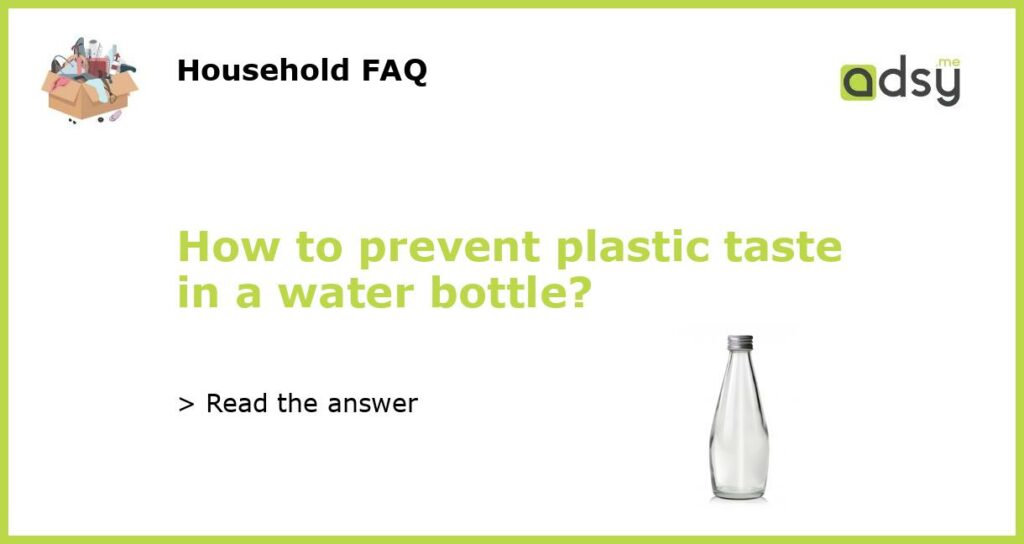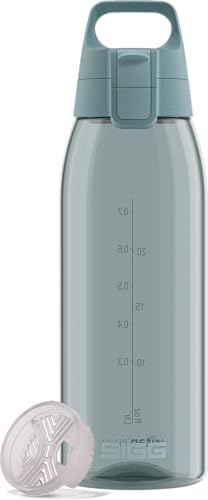Understanding What Causes Plastic Taste in Water Bottles
Have you ever taken a sip of water from your bottle and tasted an unpleasant plastic flavor? This can happen due to various reasons. One of the reasons is the type of plastic used in the bottle. Some plastics can release harmful chemicals that give the water a bad taste. Another reason is the age of the bottle. As bottles get older, they can develop cracks and scratches, harboring bacteria that eventually affect the taste of the water.
Choose Your Water Bottle Material Wisely
The first step to avoid the plastic taste is to choose the material of your water bottle wisely. Opt for bottles made from materials that have been certified safe by regulatory agencies, such as the Food and Drug Administration (FDA). The safest materials for water bottles include stainless steel, glass, and BPA-free plastics. Stainless steel and glass bottles are great options as they don’t retain any flavors or odors from previous drinks.
Clean Your Water Bottle Regularly
Even if you use a high-quality water bottle, it’s still important to clean it regularly. Bacteria can build up inside your bottle, causing your water to taste different, or worse, make you sick. To keep your bottle clean, wash it with warm, soapy water after every use, and then rinse it thoroughly. You can also use a bottle brush to get into hard-to-reach areas.
Consider Adding Some Fresh Fruits or Herbs
Another way to improve the taste of your water is to infuse it with fresh fruits or herbs. You can add slices of cucumber, lemon, lime, or strawberries to your water bottle for a flavorful twist. Not only will this add a refreshing taste to your water, but it will also provide some nutritional benefits. You can even use a fruit infuser bottle designed for this purpose.
Store Your Water Bottle Properly
Proper storage of your water bottle can also prevent a plastic taste from affecting the water. Store your bottles in a cool and dry place, away from direct sunlight or heat. You should also avoid storing your bottles in the freezer or fridge, as extreme temperatures can cause plastic to break down, releasing chemicals into your drink.






